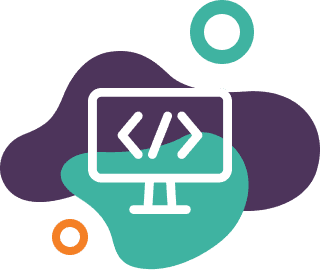Data Analytics

What is Data Analytics?
Data analytics is a sophisticated process of examining complex datasets to extract meaningful insights, utilizing advanced techniques from statistics, machine learning, and artificial intelligence. It transforms raw, unstructured information into actionable intelligence that drives strategic decision-making across various industries.
At its core, data analytics involves systematically analyzing data to uncover hidden patterns, identify trends, and generate valuable insights that would remain invisible through traditional analysis methods. By leveraging cutting-edge technologies and sophisticated algorithms, organizations can convert vast amounts of data into powerful strategic advantages.
Types of Data Analytics
The field encompasses four critical types of analysis:
Descriptive Analytics
- Provides a comprehensive overview of historical data
- Summarizes past events and performance
- Creates foundational understanding of organizational metrics
- Essential for baseline reporting and performance tracking
Predictive Analytics
- Utilizes statistical models and machine learning
- Forecasts future trends and potential outcomes
- Enables proactive decision-making
- Helps organizations anticipate market changes and customer behaviors
Prescriptive Analytics
- Goes beyond prediction by suggesting specific actions
- Recommends optimal strategies based on predictive insights
- Supports complex decision-making processes
- Helps organizations optimize resources and strategies
Diagnostic Analytics
- Investigates the root causes of specific events or trends
- Provides in-depth explanations for observed phenomena
- Helps understand complex organizational dynamics
- Critical for problem-solving and strategic improvement
Core Techniques
Data analytics employs several sophisticated techniques:
Data Mining
Extracts complex patterns from massive datasets
Data Visualization
Transforms complex data into intuitive graphical representations
Machine Learning
Identifies intricate patterns beyond traditional analytical methods
Statistical Analysis
Applies advanced mathematical models to interpret data
Predictive Modeling
Creates sophisticated forecasting algorithms
Industrial Applications
Data analytics finds extensive applications across sectors:
Marketing: Personalizing customer experiences
Healthcare: Improving patient outcomes and treatment strategies
Finance: Detecting fraud and optimizing investment strategies
Manufacturing: Enhancing operational efficiency
Retail: Predicting consumer behavior and inventory management
Transportation: Optimizing route planning and resource allocation
The Role of Technological Advancements in Data Analytics
The future of data analytics is shaped by technological advancements that are transforming the way organizations leverage data for strategic decisions. With artificial intelligence and machine learning playing central roles, analytics now allows for real-time data processing and sophisticated predictive capabilities. These innovations enable automated decision-making systems that improve speed and accuracy in business operations. As data privacy and security concerns grow, analytics frameworks are evolving with enhanced mechanisms to safeguard information. The integration of quantum computing, though still in early stages, promises to push the boundaries of complex data processing, offering insights at an unprecedented scale and speed.
Expanding Career Opportunities in Data Analytics
Professionally, these advancements are expanding opportunities for skilled analysts. Organizations are actively seeking individuals who can decode complex datasets, develop advanced analytical strategies, and communicate findings in ways that align with both technical and business objectives. This bridging of technical expertise and business acumen is essential, as analytics has become integral to decision-making across industries.
Challenges and Considerations in Modern Data Analytics
However, data analytics is not without its challenges. Ensuring the quality and integrity of data is vital for meaningful results, and as data expands, so does the complexity of maintaining standards. Ethical considerations and privacy concerns are ever-present, with data analysts and companies needing to navigate these issues thoughtfully. Additionally, the rapid pace of technological change requires continuous adaptation to remain competitive, balancing innovation with a commitment to ethical data handling.
Data analytics represents a critical intersection of technology, mathematics, and strategic thinking. As digital transformation accelerates, organizations that effectively leverage data analytics will gain significant competitive advantages, transforming raw information into strategic intelligence.